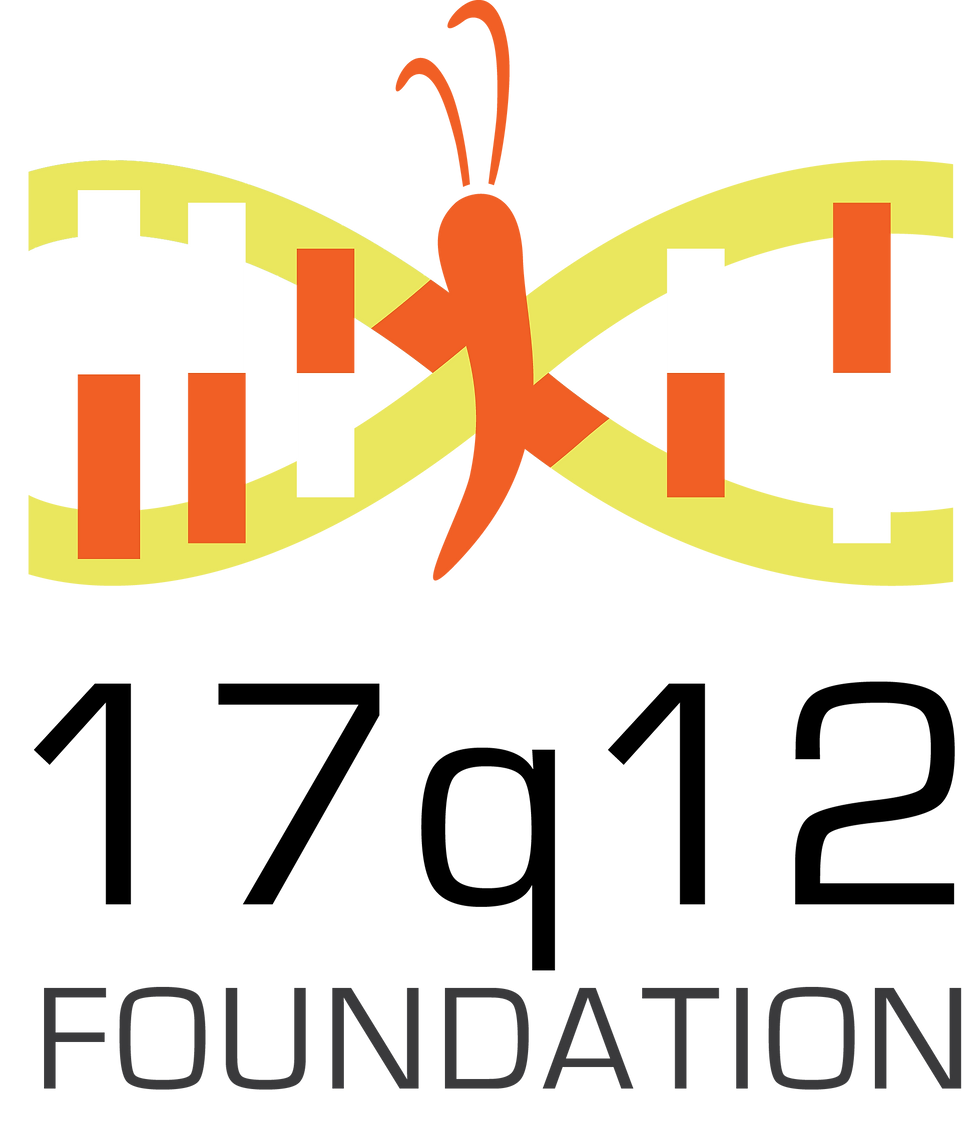
Research study is open to participants worldwide to advance understanding and treatments for rare syndromes causing MODY5 (diabetes), kidney disease, heart issues, seizures, and many other multisystem features and symptoms.
April 17, 2024 — Today, the 17q12 Foundation and the National Organization for Rare Disorders (NORD) launched a study with global reach to research chromosome 17q12 deletion syndrome and chromosome 17q12 duplication syndrome, which affect various organs and systems, have different features, and may vary person to person. Some features between the two syndromes may include MODY5 (diabetes), kidney disease, heart issues, and seizures, to name a few.
The new study, the 17q12 Patient Registry, creates a platform for patients around the world to share information about chromosome 17q12 deletion and duplication syndromes. Its purpose is to build an international resource to be used by scientists in future research. Both chromosome 17q12 deletion syndrome and 17q12 duplication syndrome are rare chromosome disorders. Based on current research, about 1 in 2,500 individuals in the general population have chromosome 17q12 duplication syndrome, and about 1 in 14,500 people in the general population have chromosome 17q12 deletion syndrome. Each syndrome has a wide range of separate symptoms involving multiple systems; ranging from neuropsychiatric disorders, learning disabilities, musculoskeletal issues such as hypotonia, to liver disease, hypomagnesemia, and kidney cysts. While each syndrome encompasses its own range of symptoms that may vary person to person, both syndromes contain the same deleted or duplicated copies of 15~ known genes.
“The 17q12 Foundation was formed out of the need for research and understanding of both these rare chromosome disorders. We often see families and individuals in the 17q12 community searching for answers to unexplained symptoms and struggling to access important resources, only to hit roadblocks due to the lack of understanding and data that currently exists for chromosome 17q12 deletion and duplication syndromes. We raised the funds together as a community, and now it is time to advocate and push for the information and understanding that our community needs! The only way to move forward with research is together. We aim to keep the 17q12 community as our focus as we leap into this next chapter,” said Liz Fourie, Vice President of the 17q12 Foundation.
To help drive awareness and participation, the 17q12 Foundation will be involved with educating and recruiting interested participants from the chromosome 17q12 patient community through future webinars, virtual meet-ups, and in person conferences. The 17q12 Patient Registry was designed and created with the 17q12 community in mind, and they will continue to be involved in the progress of the study.
“The success of the registry is dependent upon community participation. Our goal is to enroll as many patients, or their parents or legal guardians, as possible,” said Fourie.
The 17q12 Patient Registry is a natural history study that consists of electronic surveys to collect information about the patient experience and syndrome progression. Patients, or their caregivers or guardians, can enter information from anywhere in the world. The data is confidential and stored securely in the IAMRARE online portal. The 17q12 Foundation may share the data with individuals or institutions conducting research or clinical trials, as approved by the study’s governing board that includes scientists, doctors and patient advocates.
The 17q12 Foundation is launching the study in collaboration with NORD, an independent nonprofit that built its natural history study platform as part of its mission to help identify and treat all 7,000 rare diseases. The 17q12 Foundation is a member of NORD and the two organizations work together to eliminate the challenges that rare disorder patients face.
“NORD’s motto is ‘Alone, we are rare. Together, we are strong.’ The launch of this new registry is a perfect embodiment of our motto and the collaboration and community engagement needed to drive forward rare disease research and outcomes for the rare community. We look forward to furthering our partnership with the 17q12 Foundation to best support research and innovation for chromosome 17q12 deletion and duplication syndromes,” said Aliza Fink, Director of Research Data & Analytics, NORD.
For more information, visit https://17q12registry.iamrare.org/.
###
About 17q12 Foundation
The 17q12 Foundation represents individuals and families with either chromosome 17q12 microdeletion syndrome or microduplication syndrome. After meeting at a family conference for 17q12 syndromes in 2017, a group of four parents and a genetic counselor came together with the same vision, to begin a non-profit organization for chromosome 17q12 syndromes. 501(c)(3) status was gained in 2018, and today the 17q12 Foundation is run by five motivated parents, all who are volunteering their time. We represent a growing community of individuals who share the same vision: to improve the quality of life of people with chromosome 17q12 syndromes by increasing awareness, advancing research, and providing support.
About National Organization for Rare Disorders, Inc. (NORD®)
With a 40-year history of advancing care, treatments and policy, the National Organization for Rare Disorders (NORD) is the leading and longest-standing patient advocacy group for the 30 million Americans living with a rare disease. An independent 501(c)(3) nonprofit, NORD is dedicated to individuals with rare diseases and the organizations that serve them. NORD, along with its more than 330 patient organization members, is committed to improving the health and well-being of people with rare diseases by driving advances in care, research and policy. For more information, visit rarediseases.org.
Media Contacts:
Liz Fourie, info@chromo17q12.org, 17q12 Foundation
NORD Marketing and Communications, media@rarediseases.org

Comments